
Acne, characterized by the presence of comedones -- or whitehead and blackheads -- and sometimes pustules, nodules and cysts, is the most common skin condition in the United States. According to the American Academy of Dermatologists, acne afflicts between 40 to 50 million Americans, including 85 percent of teenagers. Ashwagandha, botanically known as Withania somniferum and also called winter cherry, is an evergreen shrub native to India and Africa. Ashwagandha root is used by herbalists to treat inflammatory conditions such as arthritis, as well as tumors and skin problems. Ask your doctor before taking ashwagandha to treat acne.
Anti-inflammatory Effects
According to the American Academy of Dermatologists, inflammation is one of the major components of acne. The depth of the blocked pores affects the amount of inflammation; with pimples there is mild inflammation; deep blockages, such as nodules or cysts, cause heavy inflammation. Herbalists and Ayurvedic healers have long advised the use of ashwagandha for inflammatory skin problems, including acne. Drugs.com, which provides peer-reviewed medical information to consumers, concurs that ashwagandha has anti-inflammatory effects. Although more study is needed, ashwagandha may help reduce the inflammation and skin irritation of acne.
Antibacterial Effects
Topical and oral antibiotics and antibacterial substances, such as benzoyl peroxide, are common treatments for acne. Blue Shield Complementary and Alternative Health notes that compounds in ashwagandha known as withanolides are responsible for ashwagandha's medicinal qualities. In a 2010 study conducted by Shanthy P. Sundaram and colleagues and accepted for publication in the Vol. 3, 2011 issue of "Asian Journal of Biotechnology," researchers found that extracts of ashwagandha inhibited S. aureus bacteria, and concluded that ashwagandha was a potent antibacterial agent with potential for treating disease.
Adaptogen Effects
Ashwagandha is an adaptogen, meaning that it helps the body adapt to stress. BSCAH notes that it has multiple, non-specific actions that counteract stressors and generally promote health and wellness. Although human clinical studies are lacking, animal studies have supported ashwagandha's reputation as an adaptogen. In a clinical study conducted by J.N. Dhuley and published in the April, 2000 issue of "Journal of Ethnopharmacology," researchers found that ashwagandha increased the speed and endurance of rats in a swimming endurance test; researchers concluded that ashwagandha had adaptogenic properties, as well as cardioprotective effects. According to Acne.com, stress can play a role in acne. Ashwagandha's ability to help the body combat stress may be beneficial for acne sufferers.
Dosage and Contraindications
Blue Shield Complementary and Alternative Health says the usual dosage of ashwagandha is 3 to 6 g of the dried root, taken in capsule form. You can also take ashwagandha as an infusion by boiling between 3/4 tsp. and 1 1/4 tsp. of the dried root in 8 oz. of water for 15 minutes. Drugs.com cautions that if you are pregnant or breast feeding, you shouldn't take it at all.
Related Articles

Chasteberry for Acne
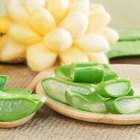
What Is Aloe Good For?

Arnica for Acne

List of Retinoids
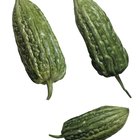
Bitter Melon for Acne

The Use of Neem Juice in Skin Care as ...

Burdock Root for Acne

Benefits of Vitamin C for Facial Pores

How to Reduce Acne Inflammation
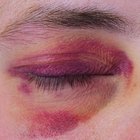
Bromelain & Bruising
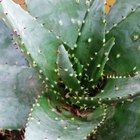
Aloe Vera & Seborrheic Dermatitis

Hop Allergies

Grapefruit Extract for Eczema
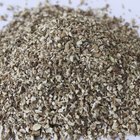
Dandelion Root for Reduced Acne Symptoms

Pycnogenol and Acne

Anise Seed Cautions and Side Effects

Are There Ways to Get Rid of Blocked ...

Benefits of Shea Butter and Coconut Oil ...

Can Tri-Luma Be Used to Fade Acne Scars?

Green Tea for Acne Scars
References
Resources
Writer Bio
Carol Sarao is an entertainment and lifestyle writer whose articles have appeared in Atlantic City Weekly, The Women's Newspaper of Princeton, and New Millennium Writings. She has interviewed and reviewed many national recording acts, among them Everclear, Live, and Alice Cooper, and received her Master of Fine Arts degree in writing from Warren Wilson College.
Photo Credits
"sugary" ground-cherry image by Alexander Simkin from Fotolia.com